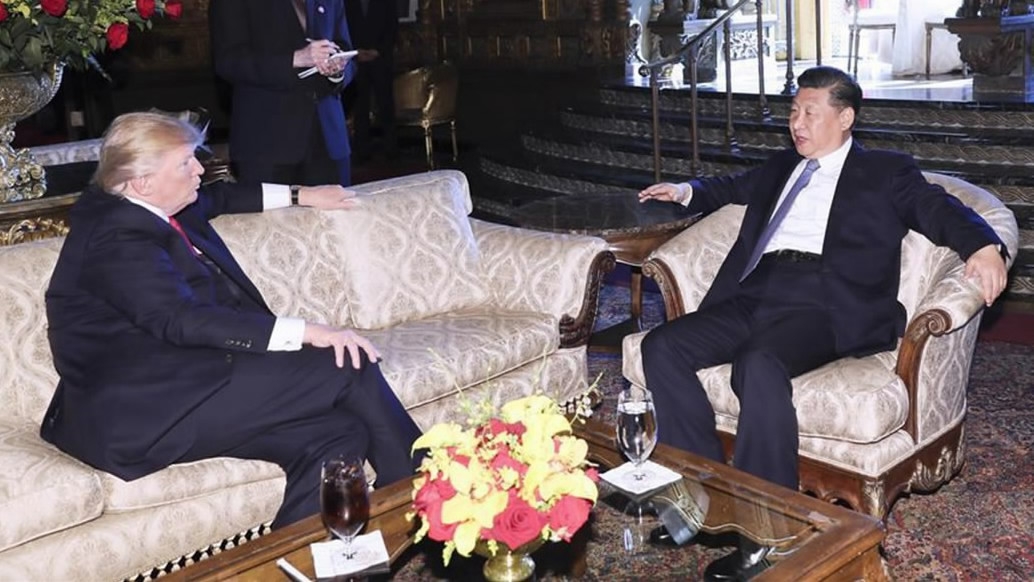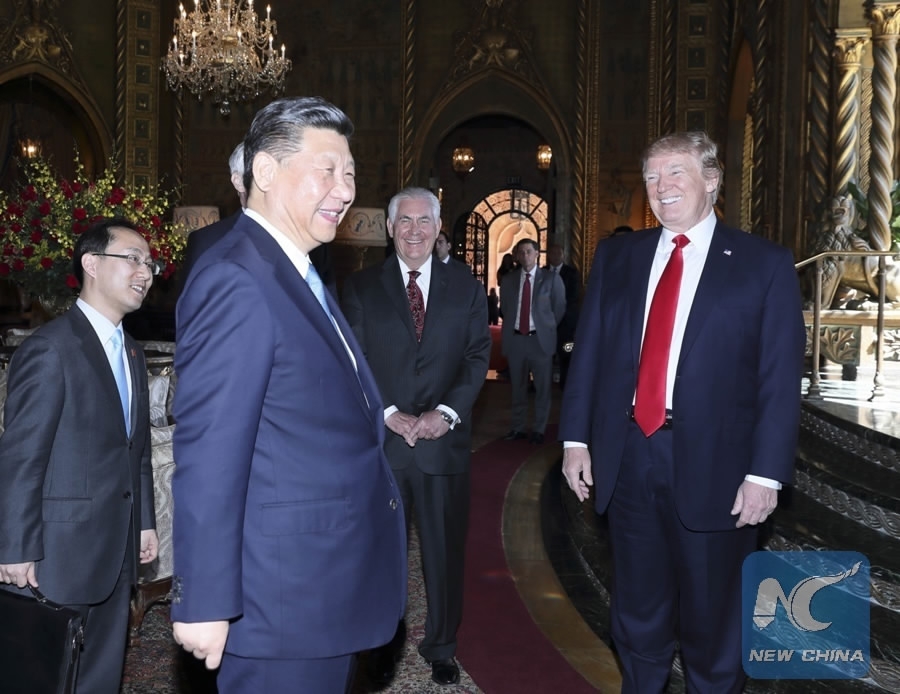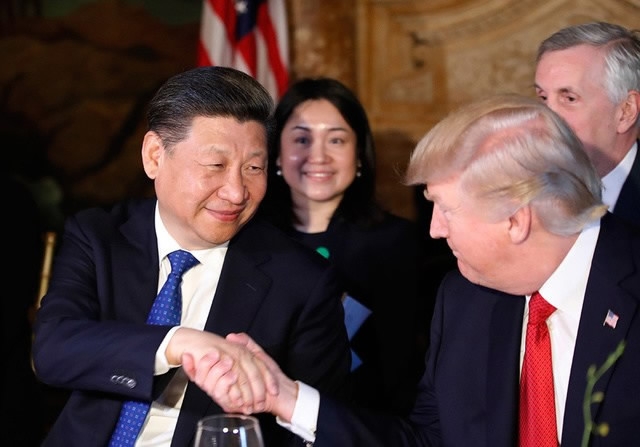
Politics
19:00, 07-Nov-2017
The ups and downs of China-US ties since Trump took office
By Han Peng

The President of the United States, Donald Trump, will arrive in Beijing on Wednesday for his first state visit to China. The Chinese government has something extra planned for Trump's stay in the country.
The presidents of the world's two most powerful economies will meet for the third time this year.
Since Trump's election, the two have spoken on the phone eight times, including a conversation in February in which Trump agreed to honor the One-China Policy.
Trump had earlier broken from protocol by taking a call from the leader of Taiwan, Tsai Ing-wen.
"I had a very, very good conversation as most of you know yesterday with the President of China. It was a very very warm conversation," Trump told the US press.

Chinese President Xi Jinping (2nd L) and his US counterpart Donald Trump (1st R) holding the second round of talks at the Mar-a-Lago resort in Florida, US , April 7, 2017. /Xinhua Photo
Chinese President Xi Jinping (2nd L) and his US counterpart Donald Trump (1st R) holding the second round of talks at the Mar-a-Lago resort in Florida, US , April 7, 2017. /Xinhua Photo
During a visit to the US in April, Chinese President Xi Jinping said there was a wealth of reasons for the two nations to have a good relationship.
The visit proved fruitful in melting the iciness caused by Trump's China-bashing during his presidential campaign.
"When was the last time anybody saw us beating, let's say, China in a trade deal. They kill us. I beat China all the time," Trump said during his campaign.
Trade remains a contentious issue.
The two countries held a 100-day discussion on trade following President Xi's visit. Among the results is the resumption of US beef exports to China.
But the US government wants more, and Trump is signaling this with the huge business delegation he's bringing with him to China.
"Historically, it's a pattern on the Chinese side to send a huge delegation to the US before our Presidents went there for visit. We called this a buying spree in America. But now we've seen a reverse in the trend. Now can you really reverse this massive deficit between the US and China? It's obviously impossible in a short period of time. Many of this is structural" said Professor Xie Tao, vice dean of the School of English and International Studies of Beijing Foreign Studies University, to CGTN.
Another key issue is the Democratic People's Republic of Korea (DPRK) nuclear crisis.

Chinese President Xi Jinping meets with US President Donald Trump at the Mar-a-Lago Resort in Florida on Thursday afternoon April 6, 2017. /Xinhua Photo
Chinese President Xi Jinping meets with US President Donald Trump at the Mar-a-Lago Resort in Florida on Thursday afternoon April 6, 2017. /Xinhua Photo
This year, China voted for UN sanctions on the DPRK several times. Pyongyang has bucked international pressure by continuing its nuclear weapons and missile tests. The DPRK now says it successfully tested a hydrogen bomb that it can send to the US mainland using an intercontinental missile.
"The era of strategic patience is over," Trump said during his visit in Japan.
China proposed what it calls the "dual suspension" approach. It would see Pyongyang abandon its nuclear weapons, in exchange for Washington halting military drills with Seoul.
The Trump administration has rejected this idea.
Despite differences in trade and the DPRK, Chinese leaders remain hopeful the country can find common ground with the US. Chinese authorities say they're planning to treat Trump to what they call a "State Visit Plus."
"If we really made this a 'State Visit Plus', that is intended as a message to President Trump that we value this relationship very importantly, and we do want to see some major breakthroughs and accomplishment through our summit," Prof. Xie said.
It'll be a high-profile summit covering highly sensitive issues, the impact of which will go far beyond the shores of both nations.

SITEMAP
Copyright © 2018 CGTN. Beijing ICP prepared NO.16065310-3
Copyright © 2018 CGTN. Beijing ICP prepared NO.16065310-3